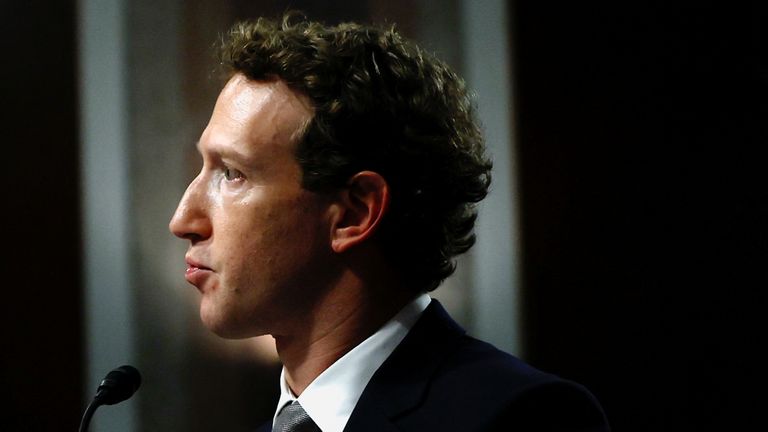Mark Zuckerberg has claimed that senior officials within the Biden administration “repeatedly pressured” Meta to “censor” COVID-related content during the pandemic.
The claims by the CEO of Meta are in a letter dated 26 August to the House of Representatives Judiciary Committee.
Zuckerberg said he regretted not speaking up about this pressure earlier, as well as other decisions he had made as owner of Facebook, Instagram and WhatsApp around taking down certain content.
This included content Zuckerberg said was “humour and satire”, with government officials expressing “a lot of frustration” when Meta didn’t agree to do so, he alleged.
“Ultimately it was our decision whether or not to take content down, and we own our decisions, including COVID-19-related changes we made to our enforcement in the wake of this pressure,” Mr Zuckerberg said.
He continued: “I believe the government pressure was wrong and I regret that we were not more outspoken about it.
“I also think that we made some choices that, with the benefit of hindsight and new information, we wouldn’t make today.”
During the pandemic, in July 2021, President Joe Biden said social media platforms like Facebook were “killing people” for allowing misinformation about coronavirus vaccines to be posted on its platform.
The pandemic period is generally regarded as having lasted from when the World Health Organisation declared the COVID outbreak a public health emergency of international concern in late January 2020 to when it ended the status in May 2023. Mr Biden was elected in November 2020 and became president on 20 January 2021.
The letter also referred to the FBI having “warned” Meta about “a potential Russian disinformation operation about the Biden family and Burisma in the lead up to the 2020 election”.
Burisma is a Ukrainian energy company on which Mr Biden’s son Hunter once served on the board of directors.
Zuckerberg said following the FBI’s warning, a story emerged in the New York Post that included corruption allegations against Mr Biden’s family and Meta responded by sending it to fact checkers and demoting it while waiting for a reply. it has since emerged that the story was not linked to Russian disinformation.
Meta said it has now changed its internal policies to “make sure this doesn’t happen again”, the social media boss said in the letter, which was addressed to Republican representative Jim Jordan, the chairman of the committee.
He said the company no longer demotes content while waiting for it to be fact checked.
In response to Zuckerberg’s letter, the White House said in a statement: “When confronted with a deadly pandemic, this administration encouraged responsible actions to protect public health and safety.
“Our position has been clear and consistent: we believe tech companies and other private actors should take into account the effects their actions have on the American people, while making independent choices about the information they present.”
Republicans have trumpeted the letter as a personal victory as the campaigns for this year’s November election continue to heat up.
It also reflects the growing sway social media has within politics and elections and comes after X owner Elon Musk previously threw his weight behind Donald Trump’s bid for a second term.
In the letter, Mr Zuckerberg also said he would not make any more contributions to support electoral infrastructure in this year’s US presidential election as to “not play a role one way or another”.
In the last election, the billionaire contributed $400m (£303m) via the Chan Zuckerberg Initiative, his philanthropy venture with his wife, to support election infrastructure, a move that drew criticism and lawsuits from some groups that said the move was partisan.
It comes as experts are warning this year’s US election could be swamped by misinformation and disinformation on social media, with artificial intelligence and other tools producing more false news stories and content that could mislead voters.
